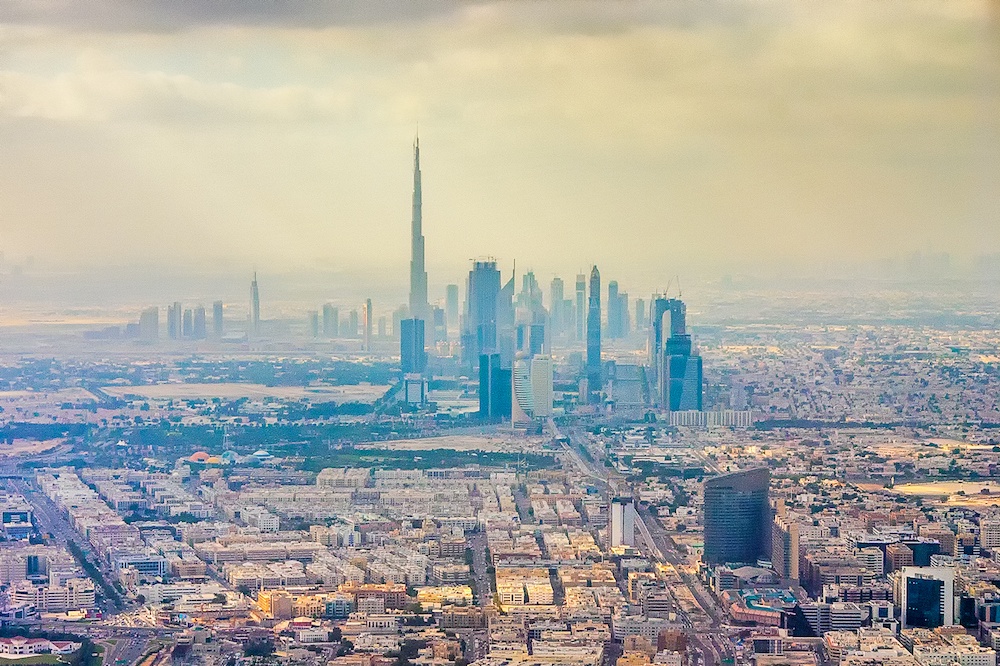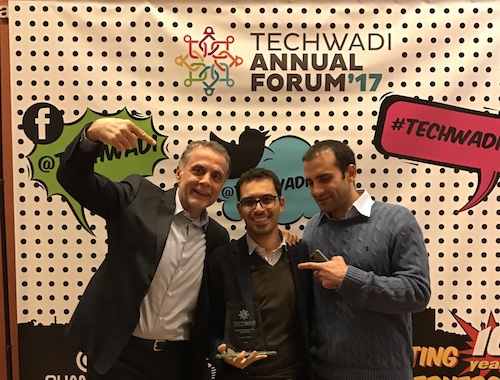MENA startup culture shows signs of early Silicon Valley

The MENA region is a beacon of largely unchartered technological territory with its potential often stunted by lagging institutional resistance and slow adaptation to change.
But just as Silicon Valley took decades to become the stronghold of global entrepreneurship, the MENA ecosystem is growing over time - albeit a rate much faster than the Valley - and peaking international interest.
“The startups in the region are multinational. They are not only Arabs, they are people who believe in the region and live in the region,” said Fadi Ghandour, chairman and CEO of Wamda Capital, during a talk at Techwadi’s Annual Forum in San Francisco on Saturday.
Opportunity across several sectors in the Middle East including fintech, travel tech and media, is massive, said Ghandour, noting that by 2020 every single Arab will have a smartphone and be online.
“Come to the region, invest in it, believe in it. We are investing in it, I don’t know why you shouldn’t,” he said.
.@fadig: "Come to the region, invest in it, believe in it. Wamda's doing it, I don't know why you shouldn't." #TechWadiAF pic.twitter.com/fBty3LyYvS
— Wamda ME (@WamdaME) January 28, 2017
Wamda Capital was voted VC Fund of the Year at Techwadi’s forum. Alaa Alsallal, founder and CEO of Jamalon, the Amman-based online book retailer was awarded Entrepreneur of the Year. Dr. Ossama Hassanein, long-time entrepreneur, mentor, and venture capitalist, won Techwadi’s Lifetime Achievement Award. Careem was voted Startup of the Year.

In addition to the opportunity and growing number of startups in the Middle East, part of the region’s success is in its US-based companies founded by MENA entrepreneurs.
Many expats found opportunity and success in Silicon Valley and have been a part of the fabric of the ecosystem as much as any other immigrant group. Some, like Hind Hobeika, founder of Instabeat, recently left Lebanon in order to scale her business in California, while others like Louay Eldada, CEO and founder of Quanergy, immigrated decades ago, only to flourish with the mentorship and backing of US entrepreneurs.
Yemeni American Mokhtar Alkhanshali, the Port of Mokha founder who sought the perfect cup of coffee in his native Yemen, is selling his coffee at a steeping cost of $16 a cup - perhaps the most expensive drip coffee in the San Francisco area.
What will it take to create an ‘Arab Renaissance 2.0’?
Dr. Maher Hakim of Qatar Science and Technology Park described several shortcoming in the rise of a healthy startup culture in the Middle East.
“We need an environment that has characteristics that allows us to collaborate with each other. This environment of trust, inclusivity, collaboration, commitment, security, and diversity exists in Silicon Valley but not in the Arab world,” said Hakim during a keynote discussion at the forum.
“A rising tide lifts all boats,” he said.
According to Hakim, ingredients needed to build what he titled ‘Arab Renaissance 2.0’ included building an environment that rises above ethnicities, having people who care enough to solve the region’s challenges, and nurturing a community of trust.
Dr. Maher Hakim of @QSTP "The rise of startup culture is diversity & experimentation, an Arab Renaissance needs a new mindset" #TechWadiAF pic.twitter.com/Yo8DIY3BQH
— Wamda ME (@WamdaME) January 28, 2017
The gender gap
Other speakers at the Techwadi forum focused on duties to surpass gender stereotypes.
Moderated by Iraqi American Deena Shakir, a manager at Google, a panel lineup of Middle Eastern women in tech provided insight on the fabric of successful startups, which were more gender inclusive.
Yet women are still very much absent in technology startups in the Middle East despite being integral to the success of many startups, and are often overlooked by a male dominated society.
Panel speakers like Noor Sweid, CIO of Dubai Holding Ventures, discussed parental upbringing in predominantly patriarchal societies in the Middle East as causes for the lack of women in dominant decision making positions. Egyptian American Dina Sherif, cofounder and CEO of Ahead of the Curve, said the Egyptian GDP would rise by 30 to 35 percent if only women were formally brought into the economy and had there been a 50/50 ratio of both sexes in the workforce.
Many of the challenges faced by startups 20 years ago in Silicon Valley are not unlike those of currently in MENA. But just as the Valley exploded as the result of local and international talent in the area, so will the region, as its majority youth population seize opportunities MENA presents, governments ease the barriers to success, and local and international collaboration is fostered.
Feature image of Dubai via Wikimedia Commons.


